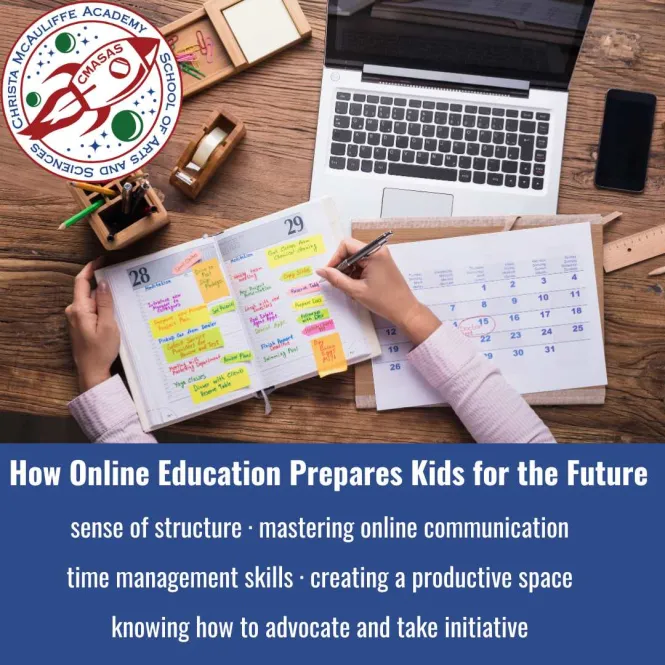HOW ONLINE EDUCATION PREPARES KIDS FOR THE FUTURE

Let’s dive into how online education can prepare students for how the workforce is moving towards remote employees. Before we can dive into the ‘how’ question, we must acknowledge that remote working is the future of the workforce.
In two years, nearly a quarter of the workforce is projected to be remote.
“According to Upwork, by 2025, an estimated 32.6 million Americans will be working remotely, which equates to about 22% of the workforce [2]. This projection suggests a continuous, yet gradual, shift towards remote work arrangements.”(Forbes Advisor)
Since the pandemic, when many employees had to begin to work remotely, there became a major shift in Americans’ desire for remote work:
“Interestingly, workers’ preference for remote work aligns with this trend. A staggering 98% of workers expressed the desire to work remotely, at least part of the time [3]. This overwhelming figure reflects the workforce’s growing affinity towards the flexibility, autonomy, and work-life balance that remote work offers.” (Forbes Advisor)
Now, the question arises: what makes a successful remote employee? After conducting some research, we highlighted several things, and if you are interested in the full list from Business Insider, check it out here.
1. Being able to develop a sense of structure
At CMASAS, students have flexibility to complete work as quickly or slowly as they need given their individual needs. Finding the right structure in their day and sticking to their schedule is important in helping them achieve their academic goals while pursuing their passions. For example, if your child is a student-athlete with early morning workouts, then later in the day would be a better time for them to realistically tackle their coursework. They would have time to come home, shower, eat, and then sit down and complete their daily assignments. Students are empowered to work with their PECs on setting goals and development of time management skills. This leads me to the next quality.
2. Finding or creating a space where you can focus on your work
Because the student is not physically leaving for a school building everyday means that the student, perhaps with assistance from their family, needs to learn what location works best for their learning style. Does a quiet room with zero distractions work best? Perhaps outside with the calming sounds of nature? Or maybe a coffee shop with headphones keeps them more focused with other people around. Whatever it is, these students are learning crucial skills of understanding where they feel most inspired and motivated to complete the tasks at hand.
3. Welcoming new methods of working and communicating
With remote working, communication utilizes a variety of systems. Each company has its own ‘recipe’ for how their teams and employees are expected to collaborate and show up for their roles. There are expectations and policies for what means of communication is used for certain types of situations. For instance, if someone is troubleshooting an urgent or sensitive problem, they should not send an email, but would rather be better suited to call or videoconference their co-worker or manager. With online education, the same can be said for different courses and teachers. One teacher or PEC might have a preferred method of using email. Another might have a preferred method of using Microsoft Teams. Regardless, after the student receives instruction on how the communication should be exchanged, they must adapt and learn accordingly for the maximum level of success in their class.
4. Developing skills to advocate and take initiative
When someone works remotely, they are responsible for taking initiative to get answers to move forward in their projects. In a traditional work setting, people see one another in the hallways and can more easily make face-to-face connections to ask questions. Remote workers have to work harder and advocate to collaborate and get answers. For online students, this becomes second nature for them and a skill that sets them apart from others who haven’t had to do it in school.
In conclusion, whether it is developing a sense of structure, time management skills, creating a productive space, mastering online communication, or knowing how to advocate and take initiative, online students leave CMASAS with an edge in these areas, making them extremely marketable for the remote workforce.
